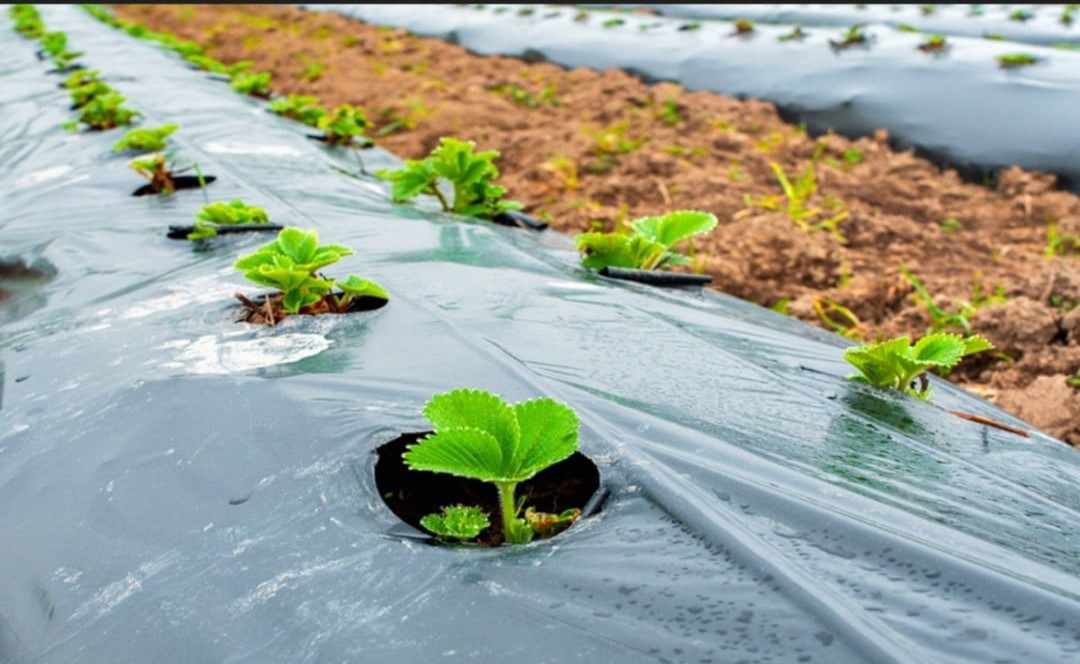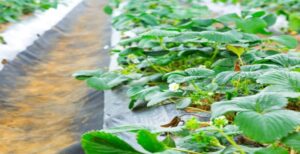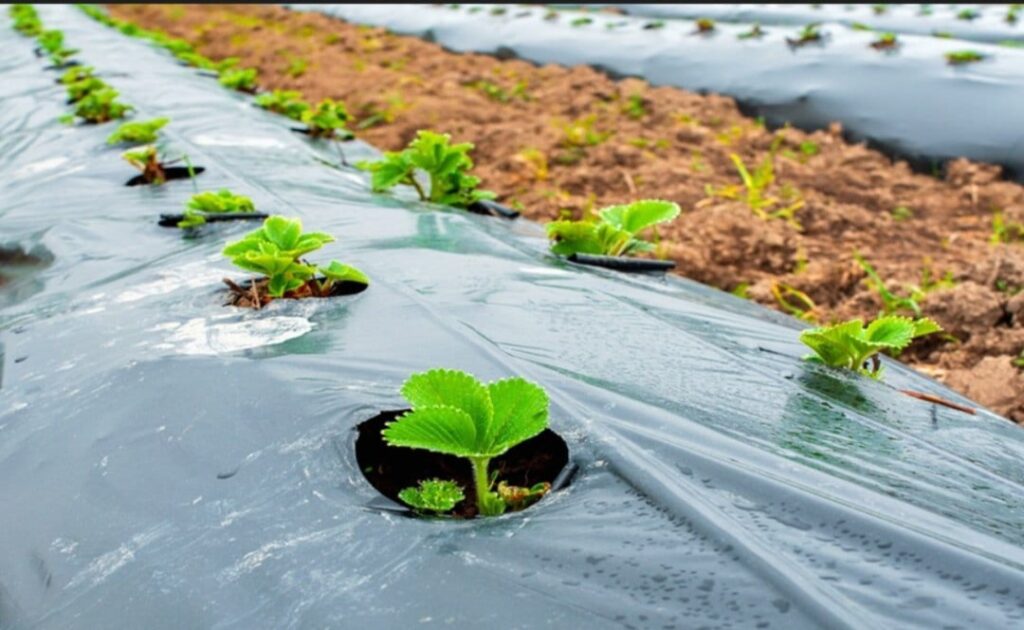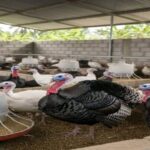Black plastic mulching: Boosting yields while conserving soil and water

In modern agriculture, black plastic mulch has become one of the most effective and widely used tools for improving crop performance. Farmers across Kenya and beyond are embracing this simple technology to control weeds, retain soil moisture and regulate soil temperature all crucial for achieving higher yields and healthier plants.
What is black plastic mulch?
Black plastic mulch is a thin sheet of polyethylene film spread over the soil surface before planting. It is designed to cover the base of crops, leaving only small openings where seedlings or seeds are planted. The plastic creates a protective barrier between the soil and the atmosphere, helping farmers manage their growing environment more efficiently.
This technique is especially popular in vegetable farming, where crops like tomatoes, peppers, melons, strawberries and eggplants benefit from the warmth and weed control provided by the plastic covering.
How black plastic mulch works
The effectiveness of black plastic mulch lies in its ability to modify the soil microclimate. By absorbing and retaining sunlight, it keeps the soil warm during the day and helps it stay warmer at night. This steady temperature encourages faster root development and earlier flowering, leading to quicker maturity and better harvests.
At the same time, the mulch blocks sunlight from reaching the soil surface, preventing weed seeds from germinating. With fewer weeds competing for nutrients and water, crops grow stronger and produce higher yields.
Another major advantage is moisture conservation. The plastic film significantly reduces water loss through evaporation, ensuring that the soil stays moist for longer periods. This allows farmers to reduce irrigation frequency, saving both water and labor.
Benefits of using black plastic mulch

One of the greatest advantages of black plastic mulch is weed control. Weeds can drastically reduce crop productivity, but by blocking light, the mulch eliminates most unwanted plants without the need for herbicides. This makes farming more environmentally friendly and cost-effective.
Another benefit is temperature regulation. The black plastic absorbs heat during the day and transfers it to the soil, which is particularly beneficial in cooler regions or during early planting seasons. Crops like tomatoes and peppers thrive in warm soil, leading to stronger growth and earlier fruiting.
The mulch also helps in moisture retention. In dry or semi-arid regions, where water is scarce, black plastic mulch minimizes evaporation losses and keeps the soil consistently damp. This improves water use efficiency and reduces the stress of frequent watering.
Additionally, farmers appreciate the cleanliness it offers. Fruits such as melons and strawberries remain clean and less prone to rot since they do not come into direct contact with wet soil. During heavy rains, the plastic covering also prevents soil erosion by reducing the impact of raindrops and runoff.
Improved yields and faster maturity
Many farmers who have adopted black plastic mulching report that their crops mature earlier and produce higher yields compared to traditional open-field cultivation. The controlled soil temperature and moisture levels create an ideal growing environment that accelerates plant development.
For example, tomatoes grown under plastic mulch often reach harvest two to three weeks earlier than those planted on bare soil. Early maturity means farmers can access better market prices and earn higher profits. The mulch also supports healthier roots and reduces nutrient leaching, which further enhances productivity.
Environmental considerations
While the advantages of black plastic mulch are clear, there are environmental concerns associated with its disposal. If not managed properly, used plastic sheets can contribute to pollution, harm soil health and interfere with future cultivation.
To address this, farmers are encouraged to recycle or reuse the plastic where possible. Some companies offer collection programs that turn used mulch into new plastic products. Others use biodegradable alternatives made from plant-based materials, which decompose naturally after use.
Proper removal of the plastic after harvest is essential. It should never be burned or buried in the soil, as this releases toxic chemicals and affects soil fertility. Farmers can also explore reusable woven plastic mulches that last several seasons, reducing waste and long-term costs.
Best practices for using black plastic mulch
For effective results, farmers should prepare the soil well before laying the mulch. The ground should be level, moist and free of sharp stones that might puncture the plastic. After laying the sheet, small holes should be cut for planting seedlings or seeds. Drip irrigation systems work best with plastic mulch, as they deliver water directly to the roots without wetting the mulch surface.
Regular inspection is important to check for tears or displaced sections, especially after strong winds or heavy rains. At the end of the growing season, the plastic should be removed carefully, cleaned, and stored for reuse or taken to a recycling facility.
Black plastic mulching is a simple yet powerful farming technique that helps conserve moisture, suppress weeds and maintain ideal soil temperatures. It enables farmers to produce cleaner, healthier crops, increase yields and make better use of limited water resources.
While the environmental impact of plastic waste must be managed responsibly, the benefits of using black plastic mulch when handled properly make it one of the most practical innovations for modern, sustainable agriculture. By adopting proper recycling practices and exploring biodegradable options, farmers can enjoy the advantages of this technology while protecting the environment for future generations.











